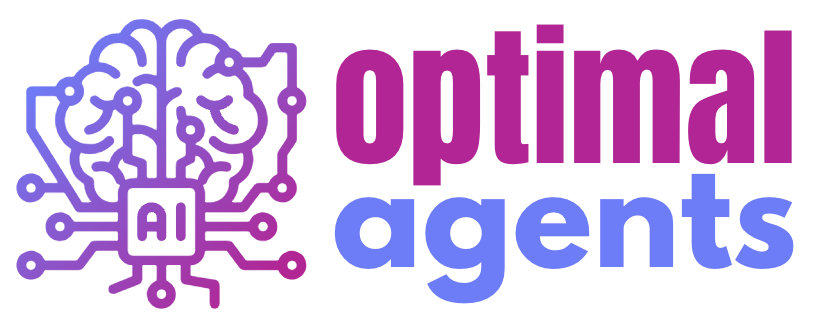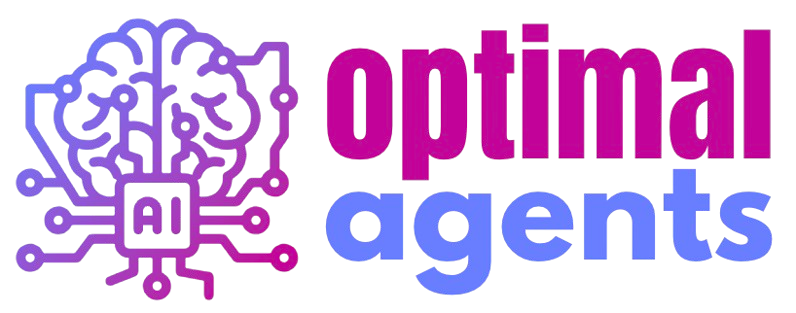Skip to main contentAgent Overview
Agents on OptimalAgents.ai can be designed to serve various purposes, not limited to:
- Data processing APIs
- AI chatbots
- Web-based AI solutions
- AI-powered applications
- AI tools for specific tasks
- AI assistants for specific domains
- Analytics and reporting tools
- Data Analysis & Dashboards for data visualization
Creators have complete flexibility in choosing the type of Problems they want to solve.
Creators have full control in choosing programming languages, frameworks, and AI models to build their agents.
They can leverage any AI models, including LLMs, and utilize various libraries and tools to enhance their agents’ capabilities.
The platform supports a wide range of programming languages, including Python, JavaScript, GO etc.
These agents will operate in a secure and flexible environment using Docker containers.
Below are detailed guidelines for AI creators to develop, deploy, and integrate their AI agents on OptimalAgents.ai.
Key Points
Agent Functionality
- Creators should create understand Agent functionality in terms of APIs, webpages, Chatbots served by the agent.
Agent Deployment
- Agents are deployed in Docker containers, which provide a secure and isolated environment for running the agent’s code.
Agent Secrets
- Each agent can have its own set of environment variables, which can be used to store sensitive information such as API keys, database credentials, and other configuration settings.
- Environment variables (Secrets) must be set up in the Creator’s Secret manager to be accessed for the agent’s Docker container.
Agent Authorization
- Agents can be configured to require user authorization before they can be accessed e.g. Premium Agents.
- This can be done by implementing an authorization mechanism in the agent’s code i.e. API call to check User access to the Agent.
- The agent can then check the user’s authorization status before allowing access to its functionality.
Agent Credit Verification
- Agents can be configured to require credit verification before they can be accessed e.g. All Agents.
- This can be done by implementing a credit verification mechanism in the agent’s code i.e. API call to check User credits to access the Agent.
- The agent can then check the user’s credit status before allowing access to its functionality.
LLM Integration
- Agents can be integrated with any type of AI models, LLM, SLM etc to enhance their capabilities and provide more advanced functionality.
- This can be done by using the LLM API-KEYs to send requests and receive responses from the LLM.
- The agent can then process the LLM’s response and use it to provide more accurate and relevant results to the user.
Agent Integrations
- Integrations stand for the ability to connect and interact with other services, APIs, and platforms e.g. Slack, Google, Zoho etc.
- Agents can be enhance their functionality and provide more advanced features by using mechanism of API-Keys & Integration SDKs.
- This can be done by using APIs to send requests and receive responses from other services.
- The agent can then process the response and use it to provide more accurate and relevant results to the user.
Agent Performance
- Agents should be designed to handle a large number of requests and provide fast response times.
- This can be achieved by optimizing the agent’s code, using caching mechanisms, and implementing load balancing techniques.
Agent Security
- Agents should be designed with security in mind, including protecting sensitive information, preventing unauthorized access, and ensuring data integrity.
- This can be achieved by implementing secure coding practices, using encryption, and following best practices for securing APIs and web applications.
Agent Testing
- Agents should be thoroughly tested before deployment to ensure they function as intended and meet the requirements of the users.
- This can be achieved by implementing unit tests, integration tests, and end-to-end tests to verify the agent’s functionality and performance.
Expectations
Expectations for AI creators include:
- Creating agents that are user-friendly and easy to understand
- Ensuring agents are capable of handling user requests efficiently and effectively
- Providing clear and concise documentation for users to understand how to interact with the agents
- Ensuring agents are secure and do not expose sensitive information or vulnerabilities
- Following best practices for coding and deployment to ensure reliability and maintainability
- Testing agents thoroughly before deployment to ensure they function as intended
- Monitoring agent performance and user feedback to make improvements over time
- Providing support and assistance to users as needed
- Keeping agents up to date with the latest features and improvements from OptimalAgents.ai
- Ensuring agents are compliant with any relevant regulations or guidelines

